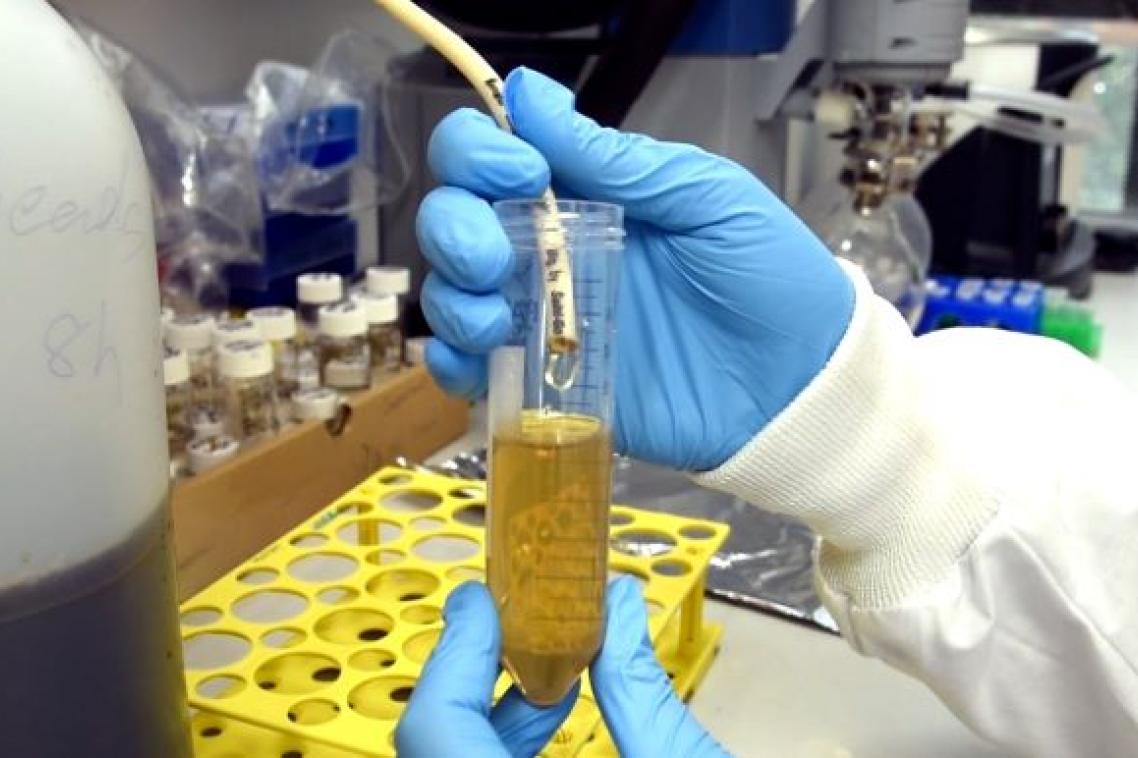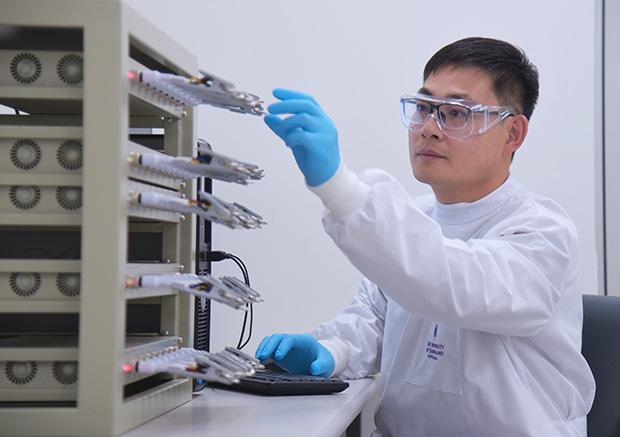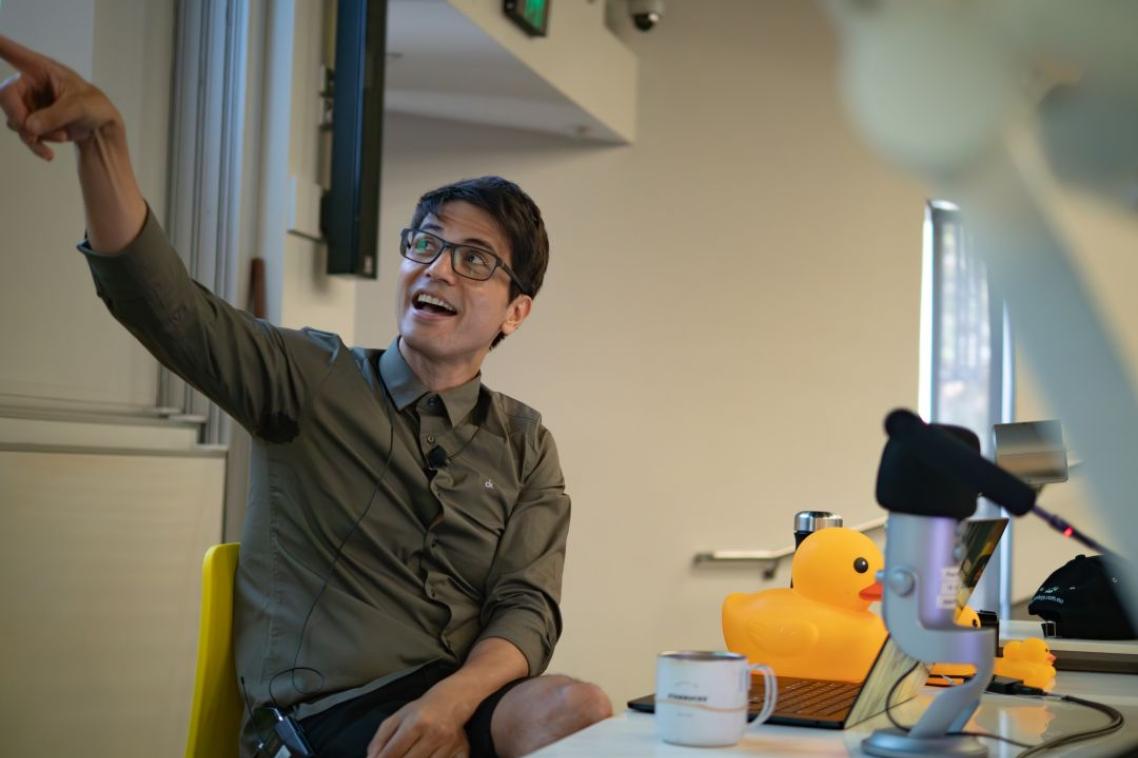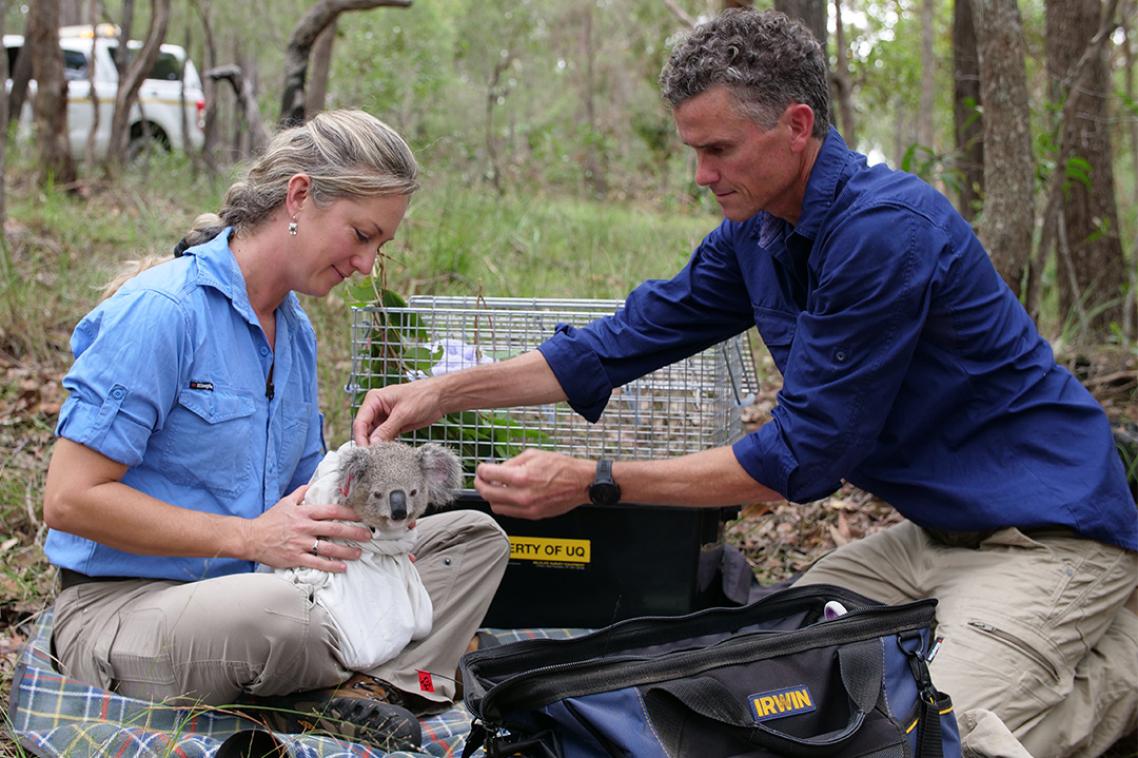Capturing PFAS chemicals for better battery technology

PFAS chemicals extracted from contaminated water by the filter.
Technology developed at The University of Queensland can remove harmful ‘forever chemicals’ from water so they can be used in renewable batteries.
Researchers at UQ’s Australian Institute for Bioengineering and Nanotechnology have made a filter which quickly and cleanly captures per- and polyfluoroalkyl substances (PFAS).
The filter contains a patented sorbent solution that uses an ion-exchange technique to isolate and remove the PFAS particles as the water passes through it.
Polymer chemist Dr Cheng Zhang said fluorine-based materials can be harvested from the filter and he’s working on using them to improve clean energy technology.
“People are increasingly aware of the risks that PFAS poses to human health, and how long these chemicals persist in the natural environment,” Dr Zhang said.

Dr Cheng Zhang testing the performance of batteries that feature components made from recycled PFAS chemicals.
“Not only does our filter technology remove harmful particles from water, those captured chemicals are available to be repurposed to help decarbonise the planet.
“The increasing demand for high-performance rechargeable batteries means manufacturers are constantly searching for new materials that improve the energy density, safety and cycling stability of batteries.
“Recycled PFAS has excellent properties for this purpose.”
Having successfully tested a prototype of the PFAS filter in a laboratory, Dr Zhang and Professor Jianhua Guo from UQ’s Australian Centre for Water and Environmental Biotechnology will soon commence pilot testing in Brisbane and the US with $1 million backing from the Advance Queensland Industry Research Projects program.
Testing is being planned for a range of sites including the Luggage Point Sewage Treatment Plant with water management company GHD, project management firm OCTA, and the Queensland Department of Environment, Science and Innovation.
In the second year of the project, an additional pilot site will be established to scale up testing.
“These demonstrations will be pivotal to scaling up our filter technology for use in industrial water infrastructure,” Dr Zhang said.
“If this testing goes as we believe it will, we hope to reach commercial production within 3 years.”
PFAS are synthetic chemicals used in consumer and industrial products because of their ability to resist heat, stains, grease and water but they persist in the environment and have been linked to a range of potential human health problems.
Related articles

Live lectures crack the code for next generation of software engineers

